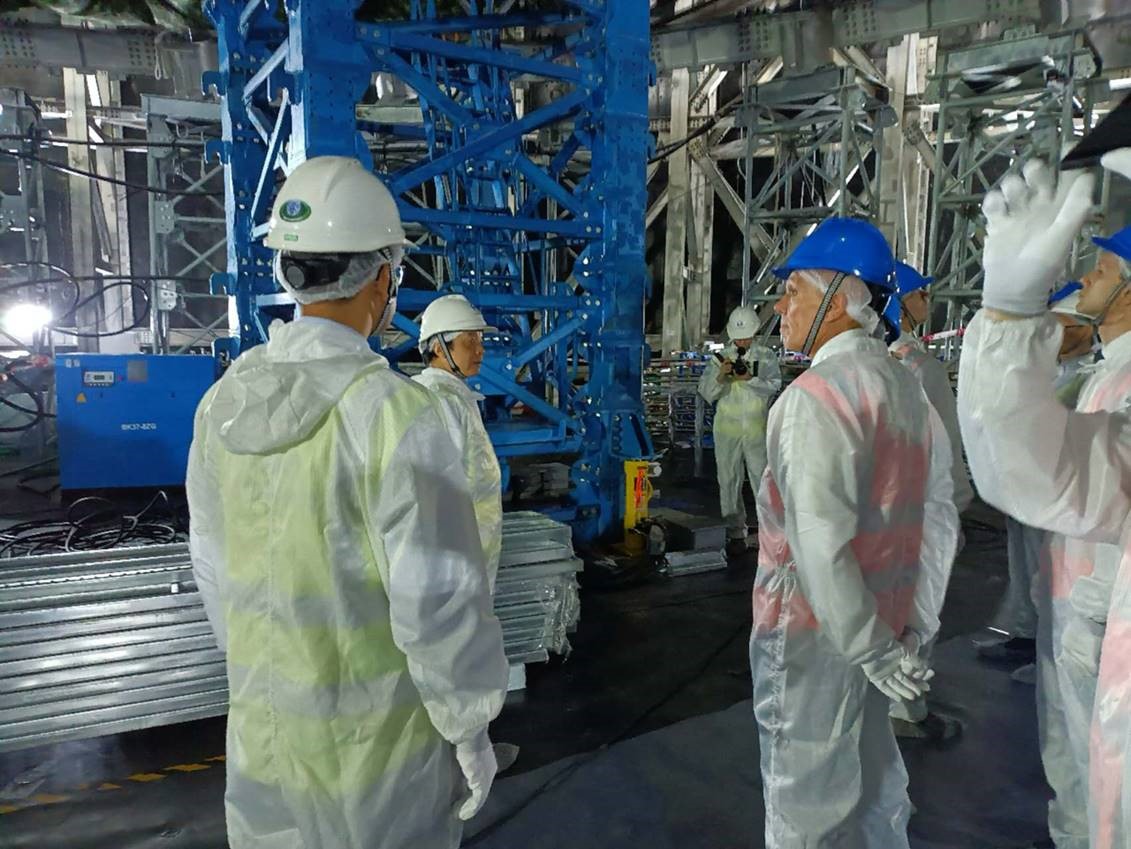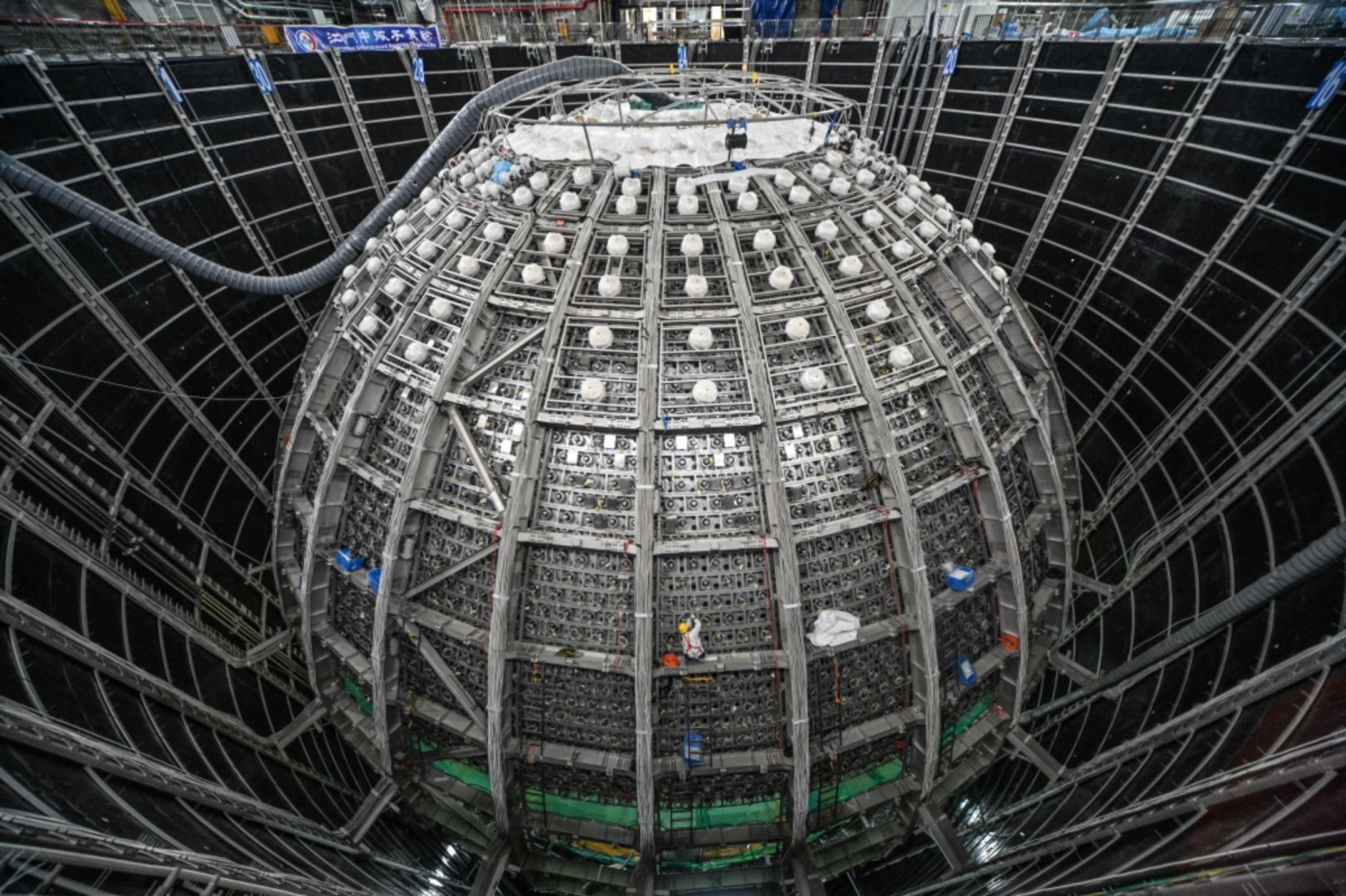"The CNRS can improve the scientific relationship between France and China"
The newly appointed director of the CNRS Beijing Office Fermin Cuevas unveils his plans for reinforcing collaboration between the CNRS and its Chinese partners, at a time when China, as a leading global scientific stakeholder, is turning to Europe.
You have been head of the CNRS's Beijing Office since October 15th 2024. How do you intend to reinforce the organisation's presence in this part of the world?
Fermin Cuevas1 : I was appointed in a particularly symbolic year, with 2024 marking the sixtieth anniversary of diplomatic relations being established between France and the People's Republic of China. A scientific component has long been part of these diplomatic relations thanks to the first framework agreement signed by the CNRS and the Chinese Academy of Sciences (CAS) in 1978. This academy is the leading research institution in China and also the world, with 67,000 publications per year, 70,000 staff members, 82% of whom are scientists, 106 research institutes and three universities.
Since this framework agreement was signed in 1978, collaboration work between the CNRS and China has continued to develop, particularly through the permanent representative office that opened in Beijing in 1995. This office is housed by the French embassy and is now made up of three people. Its aim is to showcase the wealth of cooperation projects carried out in China and France by CNRS scientists and, by extension, all such collaboration projects with our academic, institutional or university partners.
After sixty years of diplomatic relations, scientific collaboration has gone into a new phase marked by the clear desire for closer ties between China and Europe. In this context, my aim is to contribute even more to boosting the CNRS's influence in China by promoting the most open scientific collaboration possible between the CNRS and Chinese research organisations, while preserving French strategic interests. In the latter area, I'd like to enhance the balance of exchanges between China and France by moving towards greater reciprocity. China is the leading producer of scientific publications in the world, in terms of both quantity and now quality, and has become a major international research player. The country's remarkable scientific and technological development over the last twenty years makes it an essential partner. So I'm surprised to see few French PhD students working in China even today although a lot of Chinese students come to work in France. In this area, my objective is to promote the mobility of researchers from the CNRS and its partners in China while boosting training for French students.
Scientific collaboration has resumed following the Covid-19 crisis, with an intense upsurge in cooperation with China. What is the current state of relations between the CNRS and its Chinese partners?
F.C.: China has re-launched its international policy following Covid-19, particularly through scientific diplomacy. Commercial rivalry was affecting its cooperation with the United States so it moved closer to Europe. There are long-standing scientific relations between China and Europe, particularly involving France. France has made a positive response to China reaching out to Europe, believing it has a great deal to gain from its relationship with China.
In this context, clearly a parallel can be drawn between diplomatic and scientific visits. The Presidents Emmanuel Macron and Xi Jinping have both made state visits, with the former visiting China in April 2023 and the latter coming to France in May 2024. On the scientific side, a CAS delegation accompanied by the Chinese Academy of Social Sciences – a leading academic organisation – and the National Natural Science Foundation of China (NSFC), China's main research funding agency, visited Paris in October 2023. During this visit, the framework agreement with the CNRS was renewed and then in June 2024 Antoine Petit, the CNRS Chairman and CEO, made a reciprocal visit, leading a CNRS delegation to Beijing and Guangzhou.
The latter visit spotlighted the wealth of collaboration projects underway in China. As well as the two joint laboratories, there are three international networks, eleven international research projects, four new networks run in partnership with the CAS working on fundamental and applied mathematics, particle physics and biodiversity and finally a call for joint projects with the NSFC. This is the backdrop for the Franco-Chinese symposium 'Biodiversity, Global change and EcoHealth' which will take place on November 14th and 15th 2024 at CNRS headquarters in Paris. This conference has been co-organised by the CAS and the CNRS with the contribution of the French Academy of Sciences. Such scientific exchanges testify to the mutual respect of the CAS and the CNRS as the world's first and second producers of scientific publications.
However, although the CNRS is still China's leading French partner, representing 70% of Franco-Chinese co-publications, France is only China's seventh-ranked partner for international collaborations and its third in Europe behind the UK (2nd worldwide) and Germany (6th). From the French perspective, China is France's sixth most important international partner and the first-placed in Asia. China only publishes a quarter of its articles written in collaboration with institutions from other countries but there is significant room for improvement for French research stakeholders. In this context, the CNRS's historical roots in the country and wealth of multidisciplinary expertise make the organisation ideally placed to improve scientific relations between France and China.
What effect do international geopolitical rivalries have on scientific collaboration with China?
F. C.: I often repeat to my colleagues that scientific research is a source of possible collaboration projects between China and France even though the geopolitical situation could become conflictual and uncertain in the years to come. One proof of that is my own twenty-five years of personal experience of collaboration on fundamental research with my Chinese colleagues from the CAS and the Beijing General Research Institute for non-ferrous Metals and also my partners from Fudan University in Shanghai working on hydrogen storage materials.
Now is the right time to establish research collaboration between equal partners. It's time for a relationship of trust that's open whenever possible – as Europe has managed to achieve on biodiversity, climate change, food or agriculture – and closed if necessary on subjects that are too sensitive, notably for research with high technological value. The E2P2L international research laboratory based in Shanghai and dedicated to sustainable chemistry and the JUNO neutrino detector in Jiangmen, in the south of China, are evident successes.
In short then, of course it's vital to safeguard our national strategic interests but, we have everything to gain from stepping up our scientific collaboration with China.
Notes
- CNRS Research Director at the East Paris Institute Of Chemistry And Materials (CNRS / Université Paris-Est Créteil-Val-de-Marne).


